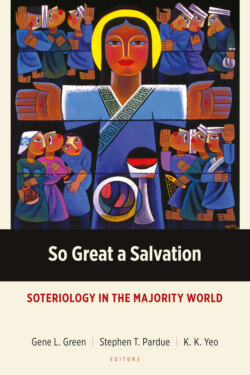Читать книгу So Great a Salvation - Группа авторов - Страница 19
На сайте Литреса книга снята с продажи.
Wesleyan/Holiness: The Second Blessing unto Perfect Love
ОглавлениеA distinctive Arminian family is the Wesleyan/Holiness tradition, in which the possibility of human freedom for faith clearly stems from prevenient grace. If Lutherans and Calvinists are stereotypically monergistic, emphasizing that salvation is due to God’s grace alone, then Wesleyans are synergistic, emphasizing that salvation involves human cooperation in a sense—exploring how divine grace works.[8]
John Wesley embraced justification by faith alone; indeed his “conversion” involved the strange warming of his heart when hearing Luther’s treatment of Romans.[9] But Wesley did not want this objective aspect of Christian assurance to prevent believers from vigorously pursuing perfect holiness or subjectively receiving assurance in light of their growth in grace. He insisted that biblical commands regarding holiness, even perfection, implied the possibility of graced obedience, enjoying this end of salvation here and now. Wesley’s focus was the heart, so perfection would not involve loss of finite weakness or error, or legally blameless lack of inadvertent sin, but complete love of God and neighbor. If Calvinists and Lutherans championed Romans, with the latter marginalizing James, then Wesleyans renewed interest in 1 John.
Realizing Christian perfection would involve ongoing growth in grace, putting sin to death and putting on Christ. But sanctification would involve more than slow, sometimes steady, progress. Christian perfection would involve seeking a special work of grace after conversion, generally labeled a “second blessing.” Such holiness meant a primarily personal focus concerning salvation, yet Holiness groups were frequent pioneers in nineteenth-century evangelical social reform: they were more typically involved in abolitionist, temperance, and women’s suffrage causes than others. Meanwhile, populist commitments enabled Wesleyans to transform the Anglo-American landscape of church life. Such alternative movements as the Keswick Convention reflect broad Holiness outlines despite altered details: pursuit of a higher plane of sanctification through repeated crises of post-conversion filling with the Holy Spirit that punctuate ordinary life. Such approaches have had widespread evangelical influence.
